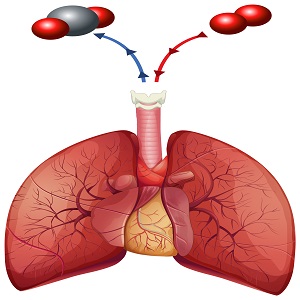The Heparin Active Pharmaceutical Ingredient (API) market is a critical segment of the global pharmaceutical industry. Heparin is a widely used anticoagulant that prevents blood clots and is essential in various medical procedures, including surgeries, dialysis, and treatment of deep vein thrombosis. The demand for Heparin API is driven by its broad application in managing cardiovascular diseases, which are on the rise globally.
The Heparin API market is influenced by factors such as the increasing prevalence of chronic diseases, the aging population, and the rising number of surgeries. Additionally, the market is shaped by regulatory policies, manufacturing practices, and the availability of raw materials, primarily derived from porcine sources.
Technological advancements and the development of low molecular weight heparin (LMWH) are also contributing to market growth. However, challenges such as supply chain disruptions and stringent regulatory requirements pose significant hurdles.
Overall, the Heparin API market is expected to experience steady growth, with key players focusing on innovation and strategic partnerships to maintain their competitive edge.
Get a sample copy of the report to know more https://medicalmarketreport.com/report/global-heparin-api-market/#requestForSample
Key Market Segments
Type
Heparin Sodium
Heparin Calcium
Application
UFH
LMWH
Key Regions
- North America (The US, Canada, Mexico)
- Western Europe (Germany, France, The UK, Spain, Italy, Portugal, Ireland, Austria, Switzerland, Benelux, Nordic, Rest of Western Europe)
- Eastern Europe (Russia, Poland, The Czech Republic, Greece, Rest of Eastern Europe)
- APAC (China, Japan, South Korea, India, Australia & New Zealand, Indonesia, Malaysia, Philippines, Singapore, Thailand, Vietnam, Rest of APAC)
- Latin America (Brazil, Colombia, Chile, Argentina, Costa Rica, Rest of Latin America)
- Middle East & Africa (Algeria, Egypt, Israel, Kuwait, Nigeria, Saudi Arabia, South Africa, Turkey, United Arab Emirates, Rest of MEA)
Key Market Players included in the report:
Hepalink
Changshan Pharm
Qianhong Bio-pharma
Opocrin
Pfizer
Aspen Oss
King-friend Biochemical Pharmaceutical
Bioibrica
Dongcheng Biochemicals
Jiulong Biochemicals
Tiandong
Xinbai
Yino Pharma Limited
Deebio
If You Have Any Questions About This Report, Please Reach Out to Us @ https://medicalmarketreport.com/report/global-heparin-api-market/#inquiry
Drivers
- Rising Prevalence of Cardiovascular Diseases
- Cardiovascular diseases are increasing globally, driving the demand for Heparin API in treatment and prevention.
- The aging population is more prone to heart-related conditions, further boosting the market demand.
- Growing Number of Surgical Procedures
- Heparin API is essential in surgeries to prevent blood clot formation, leading to increased market demand.
- The rise in elective surgeries and emergency procedures contributes significantly to market growth.
- Increased Use in Dialysis and Hemodialysis
- The growing incidence of kidney disorders is increasing the need for dialysis, where Heparin API is widely used.
- The expansion of dialysis centers globally is fueling the demand for Heparin API.
Trends
- Shift Towards Low Molecular Weight Heparin (LMWH)
- LMWH is gaining popularity due to its better safety profile and efficacy compared to standard heparin.
- Pharmaceutical companies are investing in LMWH research and development to capture a larger market share.
- Technological Advancements in Production
- Innovations in Heparin API manufacturing are enhancing product quality and reducing production costs.
- New technologies are enabling the development of synthetic alternatives, impacting the traditional heparin market.
- Expansion in Emerging Markets
- The Heparin API market is expanding in emerging economies due to improving healthcare infrastructure.
- Increased healthcare spending in regions like Asia-Pacific is driving market growth.
Opportunities
- Development of Synthetic Heparin
- There is growing interest in synthetic heparin, which can offer a more stable supply and consistent quality.
- Investment in synthetic heparin research presents significant growth opportunities for market players.
- Strategic Partnerships and Collaborations
- Collaborations between pharmaceutical companies and research institutions can lead to the development of innovative Heparin API products.
- Strategic partnerships can help companies expand their market reach and improve distribution networks.
- Regulatory Approvals in New Markets
- Obtaining regulatory approvals in untapped markets can open new revenue streams for Heparin API manufacturers.
- Companies focusing on regulatory compliance can gain a competitive edge in the global market.
Restraints
- Supply Chain Disruptions
- The Heparin API market relies heavily on animal sources, particularly porcine, making it vulnerable to supply chain disruptions.
- Outbreaks of animal diseases can lead to raw material shortages, affecting production.
- Stringent Regulatory Requirements
- Heparin API production is subject to strict regulatory scrutiny, increasing the complexity and cost of compliance.
- Failure to meet regulatory standards can result in product recalls and financial losses for manufacturers.
- Adverse Effects and Alternatives
- The risk of adverse effects associated with Heparin use can limit its market growth.
- The development of alternative anticoagulants may reduce the demand for Heparin API in certain applications.
Contact Us :
420 Lexington Avenue, Suite 300 New York City, NY 10170,
United States
Phone:+1 718 618 4351 (International),+91 78878 22626 (Asia)
Email: [email protected]



